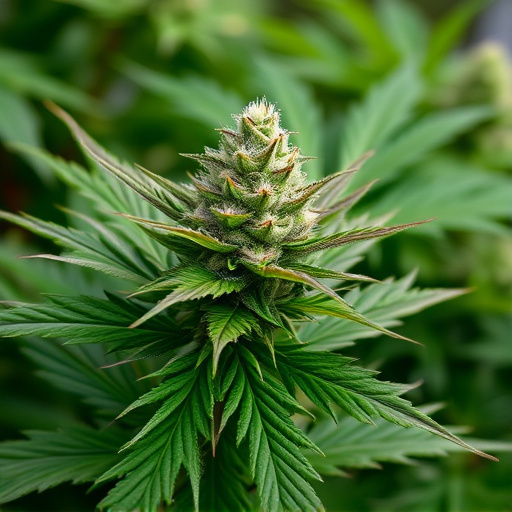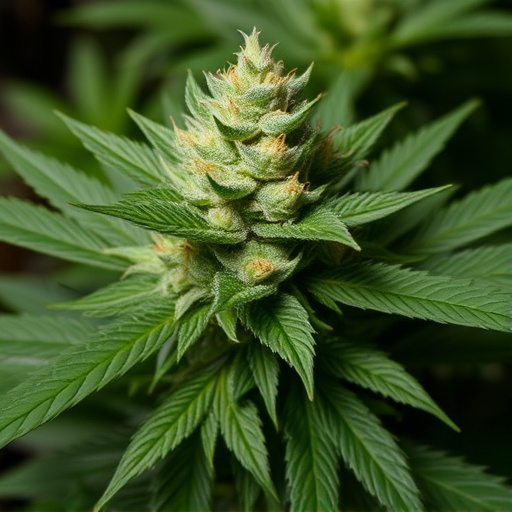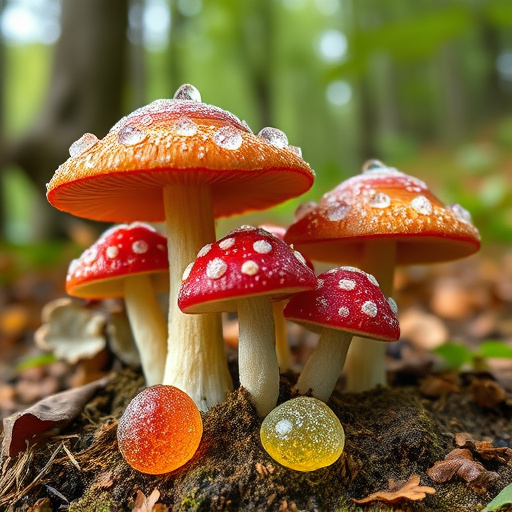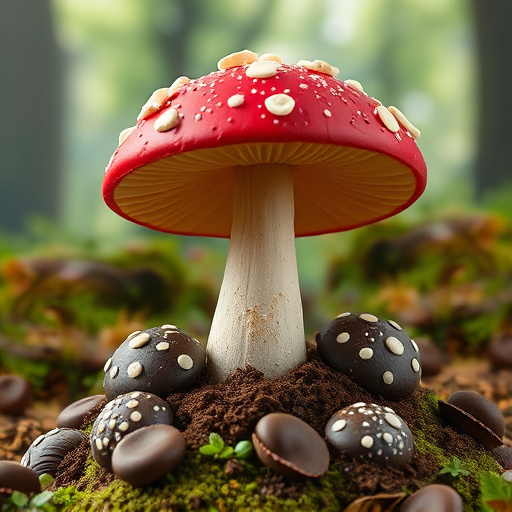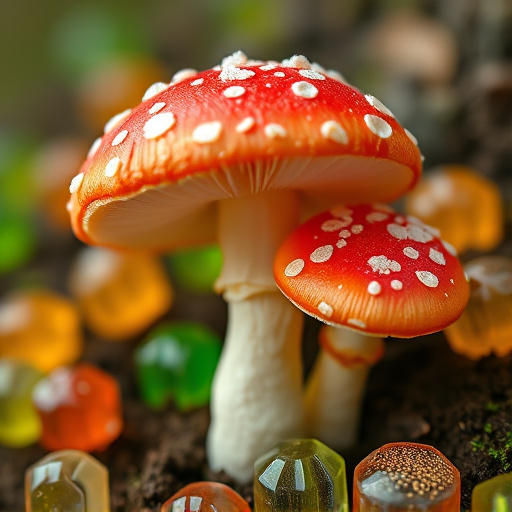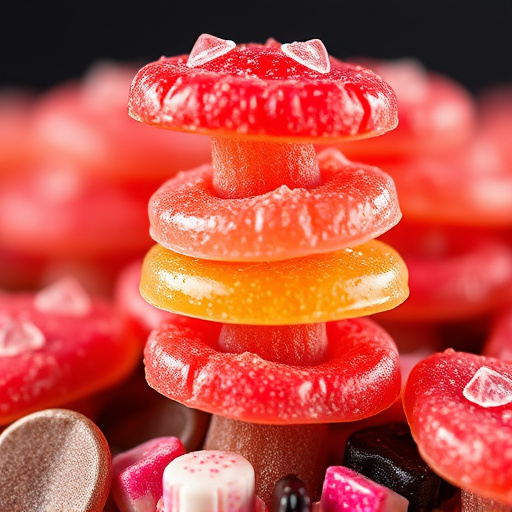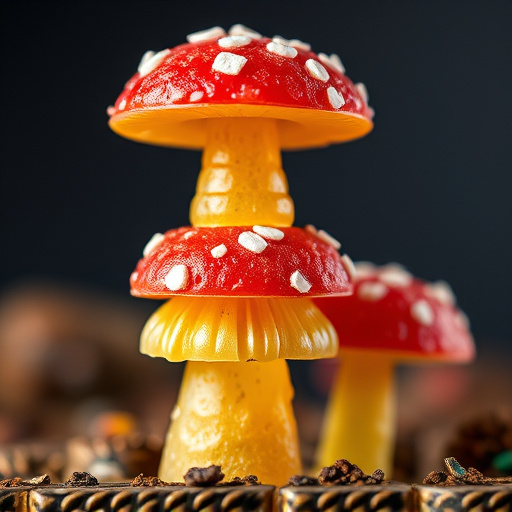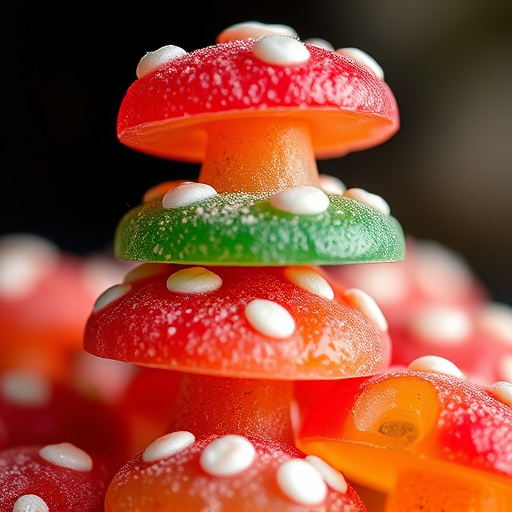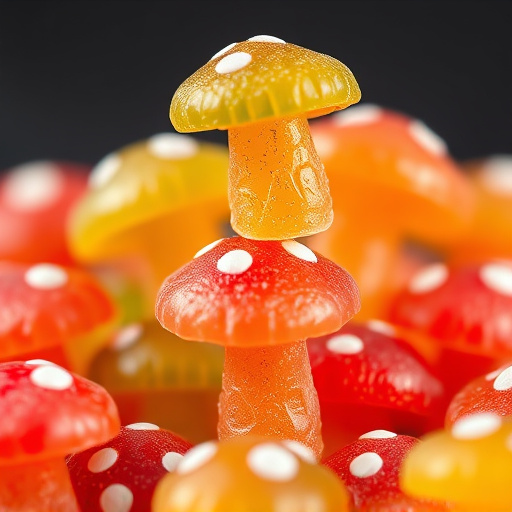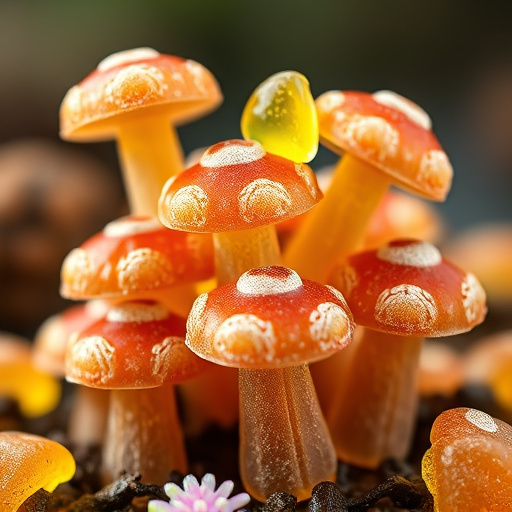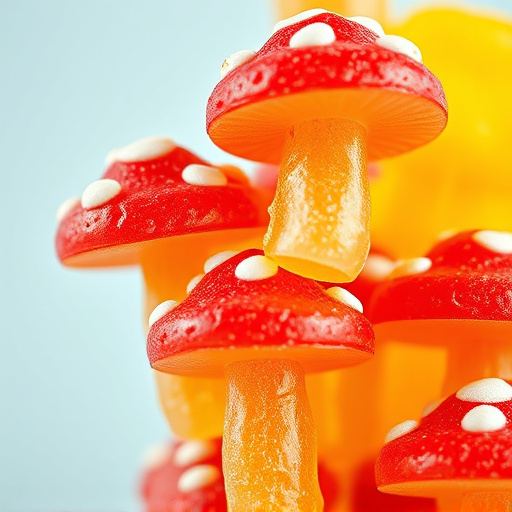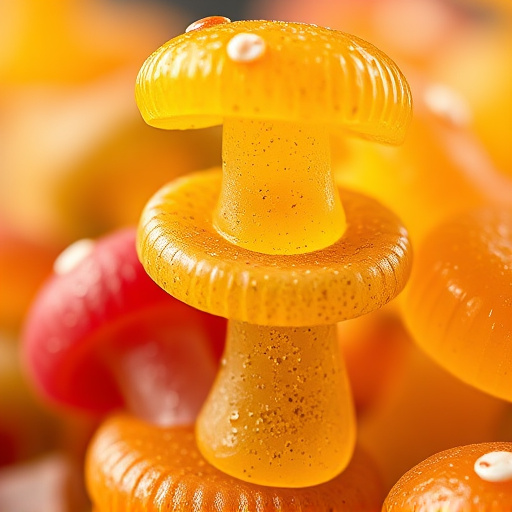The modern trend of high-potency magic mushroom gummies combines traditional psychedelics with convenience, but their legal status varies globally. Classified as controlled substances in many countries, they remain illegal to possess, sell, or distribute. However, some regions have decriminalized and legalized them for medicinal use due to growing consumer interest in psilocybin's benefits. Staying informed about local laws is crucial for compliance and personal safety. The debate centers on balancing public safety, therapeutic potential, and protecting vulnerable populations while enabling responsible access under controlled circumstances.
“Unveiling the world of high-potency magic mushroom gummies, this comprehensive guide offers a unique perspective on an increasingly popular trend. As the demand for cannabis-infused edibles soars, understanding the legal status of magic mushroom gummies is crucial. This article, ‘The Legal Landscape: Unraveling the Legal Status of Magic Mushroom Gummies,’ provides a detailed overview, balancing potential benefits and risks. From potency to regulation, we explore why knowing the law is essential before considering these innovative consumables.”
- Understanding High-Potency Magic Mushroom Gummies: A Comprehensive Overview
- The Legal Landscape: Unraveling the Legal Status of Magic Mushroom Gummies
- Potential Benefits and Risks: A Balanced Perspective on Consumption
Understanding High-Potency Magic Mushroom Gummies: A Comprehensive Overview
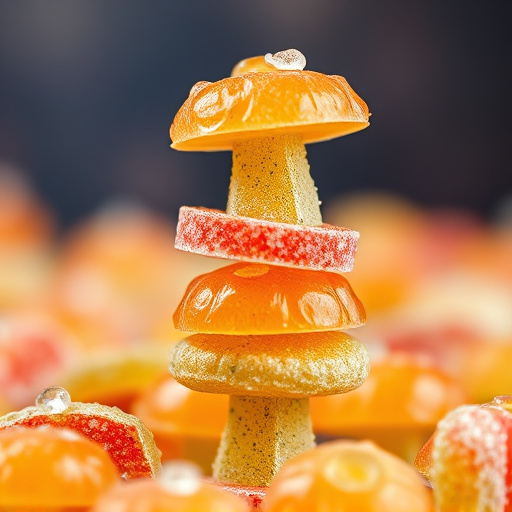
High-potency magic mushroom gummies are a modern interpretation of traditional psychedelic substances, offering a unique and often sought-after experience. These gummies combine the active compounds found in magic mushrooms, primarily psilocybin, with a delicious and easily consumable gummy format. Understanding their composition is crucial, especially when considering the varying legal statuses of magic mushroom gummies across different regions.
The production and consumption of these high-potency gummies are subject to significant regulations due to their psychedelic nature. In many countries, psilocybin and its derivatives are classified as controlled substances, making the possession, sale, and distribution of such gummies illegal. However, some jurisdictions have made strides towards decriminalization or even legalization for medicinal purposes. As consumer interest grows, it’s essential to stay informed about local laws to ensure compliance and personal safety when exploring the potential benefits of magic mushroom gummies.
The Legal Landscape: Unraveling the Legal Status of Magic Mushroom Gummies

The legal landscape surrounding magic mushroom gummies is complex and varies significantly across regions, reflecting a global divide in public perception and regulatory approaches to psilocybin-containing products. In some countries and states, magic mushrooms themselves are classified as controlled substances, with strict laws prohibiting their possession, sale, and use. However, an emerging trend has seen a shift towards decriminalization and medical integration of psilocybin, particularly for therapeutic applications in mental health treatment.
This changing dynamic has paved the way for innovative products like gummies to enter the market. Many countries have started recognizing the potential benefits of psilocybin for treating conditions such as depression, anxiety, and PTSD, leading to a growing interest in regulating these products separately from illicit drugs. The debate around the legal status of magic mushroom gummies centers on public safety, therapeutic potential, and the need to protect vulnerable populations while also allowing responsible access under controlled circumstances.
Potential Benefits and Risks: A Balanced Perspective on Consumption
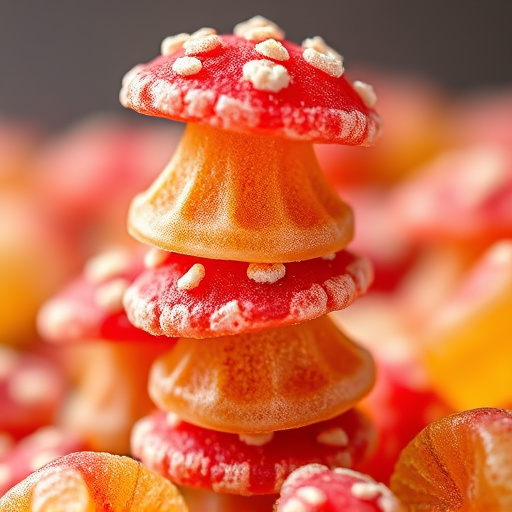
The legal status of magic mushroom gummies is a complex issue, with varying regulations across different regions. While some areas have legalized psychedelic substances for medicinal or recreational use, including gummies infused with psilocybin mushrooms, others maintain strict prohibitions. This disparity underscores the ongoing debate surrounding their potential benefits and risks.
Proponents argue that high-potency magic mushroom gummies can offer therapeutic advantages for conditions such as depression, anxiety, and PTSD, with studies suggesting their effectiveness in controlled settings. On the other hand, critics raise concerns about the unpredictable nature of psychedelic experiences, potential adverse reactions, and the risk of misuse or accidental ingestion by vulnerable populations, especially children. Balancing these perspectives is crucial to ensuring public safety while exploring the therapeutic benefits of magic mushroom gummies within a legal and regulated framework.
In conclusion, while high-potency magic mushroom gummies offer potential therapeutic benefits, their legal status remains a complex issue. The current regulatory landscape varies across regions, with some areas legalizing them for medicinal use and others maintaining strict prohibitions. As research continues to explore their effects, it’s essential to approach the topic with a balanced perspective, considering both the promises and risks associated with these potent compounds. Understanding the legal status of magic mushroom gummies is crucial for navigating this evolving space responsibly.

